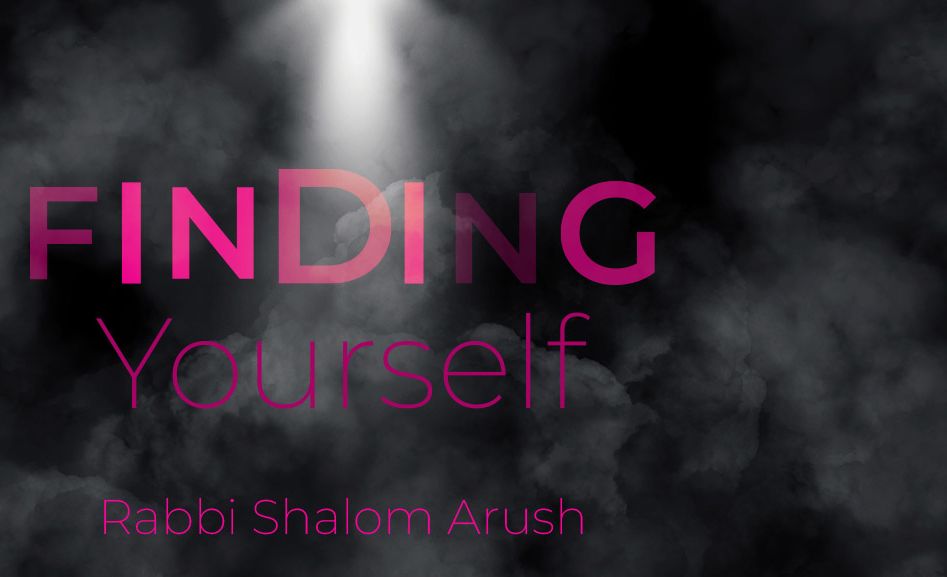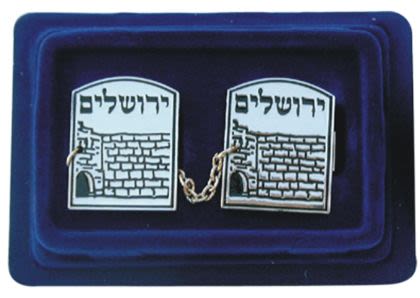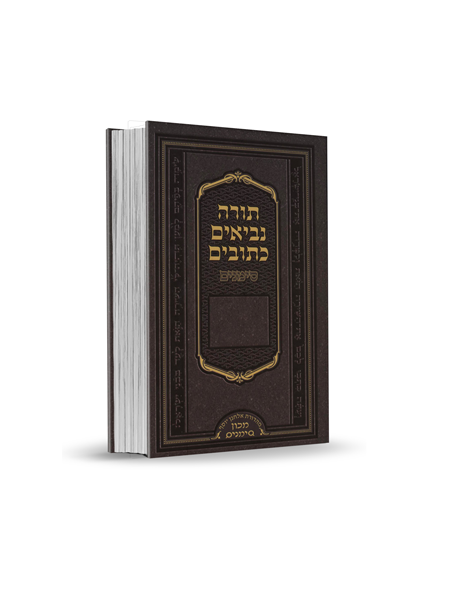
Like A Rolling Stone
Who are we talking about - Mick Jagger or King David? A stone gets kicked and rolls from place to place. King David wrote in Psalms, “The stone that the builders disdained has become the cornerstone." We all have a place in Torah, regardless of our origins and circumstances.

Mick Jagger and a popular avant-garde magazine turned the expression “rolling stone” into a household word. But, did you ever stop and think about what a rolling stone really signifies?
A person is walking down the street; he sees a white, roundish looking stone in the middle of the street. He has an irresistible urge to kick the stone as he’s walking in stride. The stone rolls straight for a few meters, and when our pedestrian catches up to it, he kicks it again. After the third or fourth kick, he ignores the stone altogether, until some other person on foot comes by and kicks the stone. Such is the life of a rolling stone – it gets kicked from person to person and place to place.
What in the world does all this have to do with Shavuot?
First, let’s ask ourselves a few basic questions that need answers: what’s the purpose of the Shavuot holiday? If it simply commemorates receiving the Torah 3,330 years ago on the 6th of Sivan, 2448, then fine! But our sages tell us that we’re supposed to renew our acceptance of Torah every year. What, is Torah no better than a driver’s license that requires annual renewal? And, why do we read the Book of Ruth every year at Shavuot time; what’s the connection?
King David is the missing piece in our puzzle. He provides the answer to all our questions, as we’ll soon see, with Hashem’s loving help.
King David is the archetype of the rolling stone. Everyone kicked him and everyone disdained him, except Hashem, of course. King David’s father thought that David was an illegitimate child. The story is as follows (see Sefer HaTodaa, ch.29):
Yishai, David’s father, was a highly G-d-fearing individual. For reasons he thought were holy, he discontinued conjugal relations with his wife after she bore him six sons and two daughters. A few years later, he decided to take a Canaanite woman – his wife’s maidservant – as a concubine. This woman was very upright and loyal to her mistress, Yishai’s wife. So, acting just like our matriarch Rachel, the concubine switched places on consummation night with her mistress. Yishai thought he was having relations with the concubine, but it was really his own wife. So, after she became pregnant, Yishai thought that the child – David – was not his.
Poor little David was disdained by his own father and brothers as a mamzer, an illegitimate child. At age three, he was sent to the wilderness as a shepherd in hopes that a wild animal would devour him. Such are the circumstances where David as a little boy triumphed in confrontations with a bear and a lion. King David “rolled” from confrontation to confrontation. He stood up to and prevailed over Goliath. His father in law Saul did everything in the world to kill him. His sons and his closest advisors rebelled and plotted against him. He had enemies from without and enemies from within. Some of the foremost scholars of the time, Doeg and Shimi ben Gera, called him the worst things in the world.
King David called himself a rolling stone. In Psalms he writes, “The stone that the builders disdained became the cornerstone.” He knew how others despised him so terribly. Yet, King David the “disdained stone” became the cornerstone of Judaism, the anointed King of Israel, Hashem’s chosen, and the ancestor of Mashiach, may he come soon, amen.
One is hard-pressed to imagine a more disadvantaged young man than David. Yet, although others treated him like a rolling stone, he refused to allow himself to sink into depression, despair, or self-pity. He poured his heart out to Hashem. The record of his personal prayers – The Book of Psalms – is the greatest best-seller in the history of the world. Disadvantaged or not, King David devoted his life to serving Hashem, learning and teaching Torah. If King David could plant himself firmly in the House of Learning rather than in an analyst’s couch, anyone can.
If King David were a yeshiva boy today, nobody in the so-called frum world (except a convert or a Baal Teshuva) would consider giving him their daughter. King David’s great grandmother was Ruth, a convert from Moab. Ruth was the granddaughter of Eglon the King of Moab, who was the grandson of the wicked Balak, Bilaam’s contemporary and partner in crime. So, in addition to King David’s other background problems, his lineage caused blue-bloods to turn up their noses. That didn’t stop King David from constantly moving up the ladder of holiness and Divine Service every moment of his life.
Now we can answer our questions: the purpose of the Shavuot holiday is to show that each of us has our share in Torah, no matter what our social station or relative advantage or disadvantage is. No one has a life more difficult than King David’s; if he accepted the Torah and committed his life to it, then so can we all. Also, since we strive to be in constant spiritual growth, it’s important to renew our acceptance of Torah every year. A true servant of Hashem receives the Torah on a higher level every single year. The Torah is compared to fresh water, and a Torah-oriented individual flows like a river as opposed to stagnant water that stands in one place.
We read the Book of Ruth on Shavuot to show that Torah Judaism is not an aristocracy – everyone, especially converts and Baalei Teshuva – have a share in Torah. Some of our history’s greatest scholars were converts and BTs, such as Ovadia the Prophet, Shmaya and Avtalion, Rebbe Akiva, Resh Lakish, and many more. The Moabites were a cursed people; that didn’t stop Ruth from seeking her attachment to holiness.
It’s no wonder that Shavuot – the 6th of Sivan – is also the yahrtzeit, the anniversary of King David’s departure from this physical earth. May his holy memory be a credit to us all!










Tell us what you think!
Thank you for your comment!
It will be published after approval by the Editor.